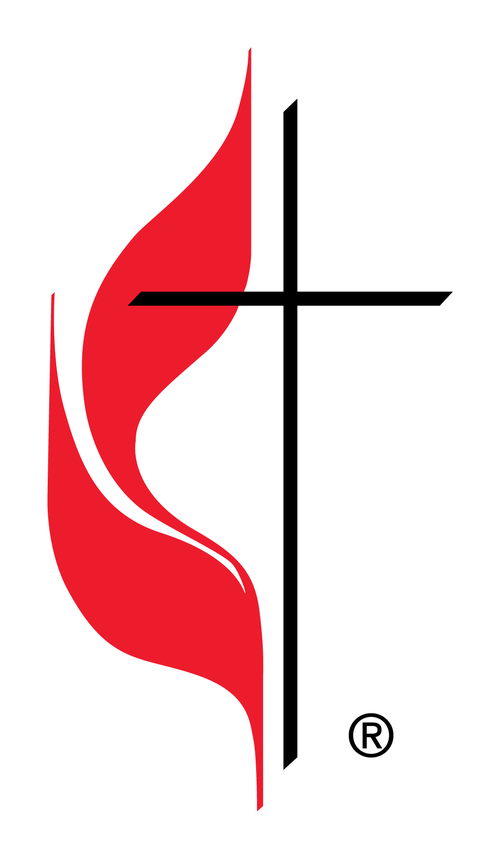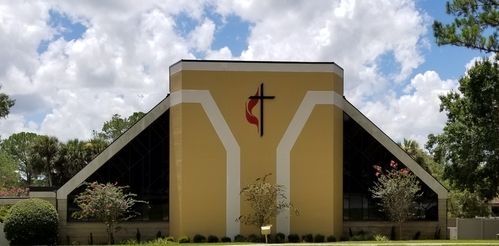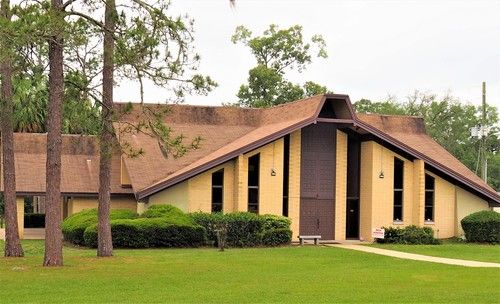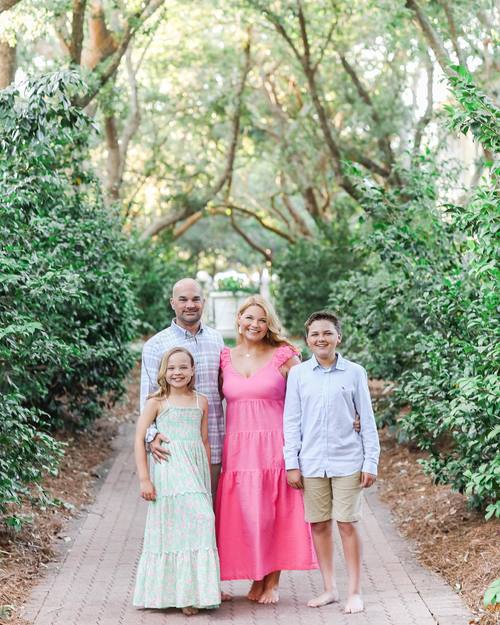As a United Methodist Church, we are theologically middle-of-the-road. We believe in cooperation and connection with other Christian churches as well as other religious groups who seek to make the world a better place. The United Methodist Church, and Saint Paul’s, seek to be both Christ-centered and open-minded in our practice and our beliefs, focusing on the basics of the Christian faith in the Protestant perspective and leaving the rest to opinion.
Here are some "quick-take" beliefs of St. Paul's United Methodist Church:
- The United Methodist Church has an "open table" when we celebrate Holy Communion (aka mass, eucharist, the Lord's Supper). This means we have no tradition of excluding anyone from Holy Communion if they wish to come forward.
- As United Methodists, we believe God's grace is open to all who come to God for salvation, and that no person or group of people is predestined to be saved or condemned.
- The United Methodist Church has ordained women as pastors since 1956, and we see spiritual leadership as independent from one's gender.
- The United Methodist Church welcomes all people into its ministries and membership into its churches; regardless of racial, national, or ethnic identity, sexual orientation, gender identity or expression, or disability.
With Christians of other traditions and denominations, we confess belief in the triune God—Father, Son, and Holy Spirit. The Apostles’ and the Nicene Creeds are the creeds that make up the bedrock of our belief system, as well as being the “standard” creeds of all Christian churches, no matter what denomination they represent.
Symbolism of the Cross

The history and significance of the Cross and Flame emblem are as rich and diverse as The United Methodist Church. The insignia’s birth quickly followed the union of two denominations in 1968: The Methodist Church and the Evangelical United Brethren Church.
Following more than two dozen conceptualizations, a traditional symbol—the cross—was linked with a single flame with dual tongues of fire. The resulting insignia is rich in meaning. It relates The United Methodist church to God through Christ (cross) and the Holy Spirit (flame). The flame is a reminder of Pentecost when witnesses were unified by the power of the Holy Spirit and saw “tongues, as of fire” (Acts 2:3).
The elements of the emblem also remind us of a transforming moment in the life of Methodism’s founder, John Wesley, when he sensed God’s presence and felt his heart “strangely warmed.” The two tongues of a single flame may also be understood to represent the union of two denominations.
About United Methodism
United Methodists are the second largest Protestant Christian denomination in America. We hold to the historic doctrines of the Christian faith as found in the Apostles’ Creed. We are evangelistic, but theological moderates rather than fundamentalists. You don’t have to belong to a particular political party to be a United Methodist, and you’ll find us on all sides of the political spectrum. We value the intellect and modern science, while at the same time looking to the Bible as the authoritative guide for faith and practice. Methodists have a passionate faith with strong convictions, but we also recognize that the world is not always black and white. We are willing to ask questions, to wrestle with difficult issues, and to do so with grace and compassion.
Saint Paul’s is a part of the Florida Conference of the United Methodist Church, which is a regional unit of The United Methodist Church. The Florida Annual Conference stretches more than 700 miles from just west of Tallahassee to the Florida Keys. Between are 740 churches with more than 320,000 members from African-American, Anglo, Filipino, Haitian, Hispanic, Korean, Native American, Russian and Vietnamese backgrounds making up one dynamic church.
Part of our heritage as United Methodists is that we are connectional, meaning that no local congregation is independent. The UMC is built on systems of cooperation and inclusion rather than division. We share ministers, resources, buildings, ministries and stories with each other across many of the traditional lines that divide us as human beings. We as United Methodists see the church as a way of uniting people in Jesus Christ, not dividing them. Part of our connectional system is included in our structure as a worldwide church, not a US-based denomination.
Historically, the Methodist movement arose as a revival within the Church of England in the 18th Century Industrial Revolution. John and Charles Wesley founded the Methodist Societies as small gatherings of Christians who were dedicated to living a more holy life, growing in love of God and their fellow human beings.
We hope you are able to learn a little about us from these pages, and we would love to learn about you! Feel free to visit us at Sunday Worship, at any of our ministry events, or you can also call the church at 352-691-2161. May God bless you!
According to our foundational statement of beliefs, United Methodists share basic affirmations in common with all Christian communities.
Learn how United Methodists share a common heritage with all Christians.
Learn how United Methodists share a common heritage with all Christians.
John Wesley and the early Methodists emphasized Christian living, putting faith and love into action.
Learn about the hallmarks of the United Methodist theological traditions.
Learn about the hallmarks of the United Methodist theological traditions.
Early in the Methodist movement, three rules of faith and life were implemented to help people grow in their walk with Christ:
Learn about the Three General Rules of Methodism
Learn about the Three General Rules of Methodism



